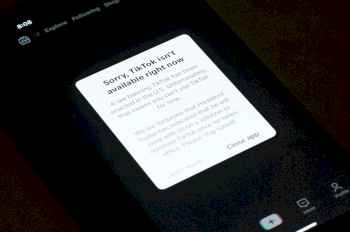McCall: Mass. must get ahead of illegal vape problem
From city councils, to State Houses and federal agencies, there is growing recognition that manufacturers and distributors of illegal flavored vapes, most made in China, are undermining significant progress made to reduce youth vaping in Massachusetts.
In 2019, almost one-third of Bay State high schoolers reported vaping over the past 30 days. That is a problem because, as Dr. Mohammad Abu-Hishmeh of Massachusetts’ Baystate Medical Center noted, vaping is linked to issues ranging from asthma attacks to weakened immune systems. That is why the Massachusetts legislature banned the sale of illegal flavored vapes in 2019. Manufacturers marketed those products, in flavors such as bubble gum and raspberry, to appeal to teenagers, fueling most of Massachusetts’ underage use of these products.
Youth use of tobacco products in any form – including e-cigarettes – is unsafe. Nicotine poses unique dangers to young people. In addition to being highly addictive, nicotine can harm the developing adolescent brain, which continues to develop until about age 25, according to the U.S. Centers for Disease Control and Prevention (CDC). Young people who use nicotine may also be at risk for addiction to other drugs.
As a former Special Agent of the Federal Bureau of Investigation, I am well versed in the multifaceted efforts taken by multiple local, state, and federal government agencies to stem the flow of these harmful products. Much like the fentanyl crisis, these vapes represent a serious public health threat. They often have dangerous, undisclosed chemicals and manufacturing practices that ignore U.S. safety standards. Reports have also shown that many Chinese-made vaping devices contain harmful toxins, including heavy metals and carcinogens, that can severely harm users.
Unfortunately, China’s e-cigarette industry has experienced significant growth even though both the Commonwealth of Massachusetts and the Food and Drug Administration (FDA) prohibit their sale. In 2021, the market size reached approximately 116 billion yuan, a more than 500% increase over the past few years. Projections indicate that this figure may have doubled this year.
What’s more, the vape lobby — hungry for more profits — is working overtime to reverse this ban. As such, in September, Massachusetts Attorney General Andrea Campbell led over 20 other state attorneys general to file a Supreme Court amicus brief with her urging the justices to uphold the FDA’s ban on the sale of these illegal flavored vapes.
The FDA has taken steps to protect American users by approving a very few specific, American-made devices for sale to U.S. adults. However, rather than maintain these safeguards for the citizenry, the U.S. International Trade Commission (ITC) is now considering banning most of these products from the market, effectively handing the multi-billion-dollar industry over to unregulated Chinese manufacturers.
That would be tantamount to ordering the closure of American-made pharmaceutical companies, allowing China to create a monopoly for its illegally trafficked fentanyl. It makes no sense. Should the ITC decide to move in this direction, Massachusetts residents would lose healthier smoking alternatives that have helped them quit nicotine, and Massachusetts local, state, and federal law enforcement officials will have a far more challenging time keeping dangerous illegal vaping products off Massachusetts store shelves. An ITC ban on said U.S. vaping products could have serious ramifications.
Luckily for the people of Massachusetts, Democratic Rep. Richard Neal has not only been an outspoken advocate for families who have suffered from the fentanyl crisis but also supports protecting children from unregulated e-cigarettes. He also serves as the ranking member of the House Ways and Means Committee, which has jurisdiction over trade issues. The ITC falls immediately under his authority.
The stakes could not be higher. From fentanyl to unregulated vaping products, the American people are already paying the price for China’s reckless disregard for health and safety. They don’t need this problem to get worse with a shortsighted ban on U.S.-made, FDA-approved products.
Now is the time for leaders like Neal to step forward and ensure that American-made products vetted for safety are protected from unfair competition. Neal’s leadership could help turn the tide, safeguard Massachusetts’ families and strike a blow against China’s dangerous trade practices. His leadership is needed now more than ever.
Michael McCall is an Adjunct Professor of Forensic Accounting, Boston College, Bridgewater State University, and Stonehill College, and a Former Special Agent, FBI


